
Al Karak: A Journey Through Jordan's Timeless Castle Town
Al Karak, a storied town in Jordan, is renowned for its imposing Crusader castle, which offers a glimpse into the medieval history that shaped the region. The castle's massive stone walls, secret tunnels, and sweeping views of the surrounding valleys create an unforgettable experience for history enthusiasts and casual visitors alike. Beyond the castle, Al Karak is a vibrant town with a rich cultural heritage. Wander through its bustling streets, explore traditional markets, and savor local Jordanian cuisine in the numerous eateries. The town's friendly locals add to the charm, making every visitor feel welcome. The landscape surrounding Al Karak is equally captivating, with rugged hills and ancient ruins scattered throughout. Nature lovers and adventurers will find plenty of hiking and exploration opportunities. The town serves as a perfect base for exploring the Dead Sea, Wadi Mujib, and other nearby attractions.
Local tips in Al Karak
- Visit the castle early in the morning to avoid crowds and enjoy cooler temperatures.
- Try the local dish 'Mansaf,' a traditional Jordanian meal of lamb cooked in fermented dried yogurt.
- Wear comfortable walking shoes as the terrain around the castle and the town can be uneven.
- Bring a hat and sunscreen, especially during the hot summer months.
- Consider hiring a local guide for a more in-depth understanding of the castle's history and hidden secrets.
Al Karak: A Journey Through Jordan's Timeless Castle Town
Al Karak, a storied town in Jordan, is renowned for its imposing Crusader castle, which offers a glimpse into the medieval history that shaped the region. The castle's massive stone walls, secret tunnels, and sweeping views of the surrounding valleys create an unforgettable experience for history enthusiasts and casual visitors alike. Beyond the castle, Al Karak is a vibrant town with a rich cultural heritage. Wander through its bustling streets, explore traditional markets, and savor local Jordanian cuisine in the numerous eateries. The town's friendly locals add to the charm, making every visitor feel welcome. The landscape surrounding Al Karak is equally captivating, with rugged hills and ancient ruins scattered throughout. Nature lovers and adventurers will find plenty of hiking and exploration opportunities. The town serves as a perfect base for exploring the Dead Sea, Wadi Mujib, and other nearby attractions.
When is the best time to go to Al Karak?
Iconic landmarks you can’t miss
Kerak Castle
Discover the enchanting history and breathtaking views at Kerak Castle, a must-visit medieval fortress in the heart of Jordan.
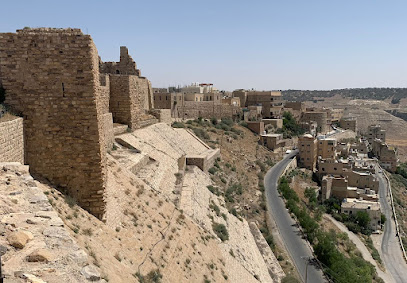
Karak Bridge Park منتزه جسر الكرك
Experience the tranquility and natural beauty of Karak Bridge Park, a serene oasis in the heart of Kerak, Jordan, perfect for relaxation and family outings.
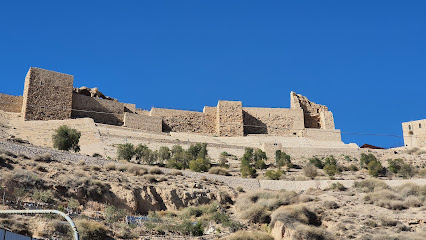
Ein Sarah Park
Explore Ein Sarah Park in Kerak, Jordan - a serene city park perfect for nature lovers and families looking for relaxation and scenic beauty.
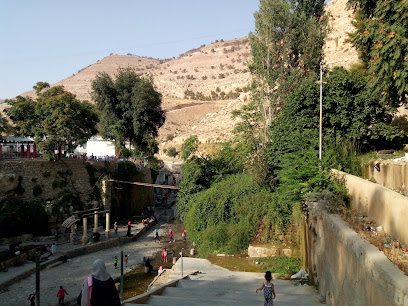
Karak Castle car parkموقف سيارات قلعة الكرك
Uncover the rich history of Karak Castle and immerse yourself in the cultural heritage of Jordan at this iconic tourist attraction.
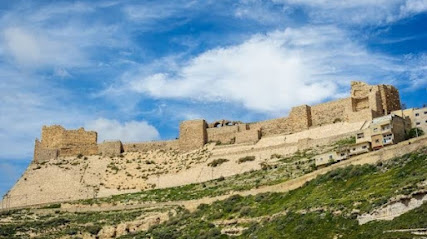
Shrine of Prophet Nuh Peace Be Upon Him - Kerak City
Explore the Shrine of Prophet Nuh in Kerak City, a spiritual landmark rich in history and surrounded by breathtaking landscapes.
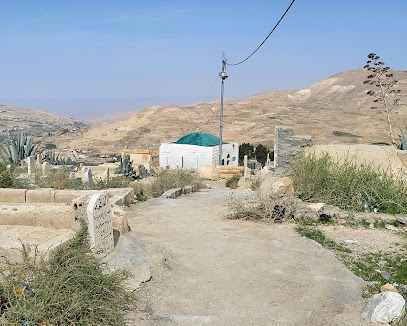
Beit alkaram
Discover Beit Alkaram: A Cozy Retreat in Kerak Offering Authentic Jordanian Cuisine and Unmatched Hospitality.
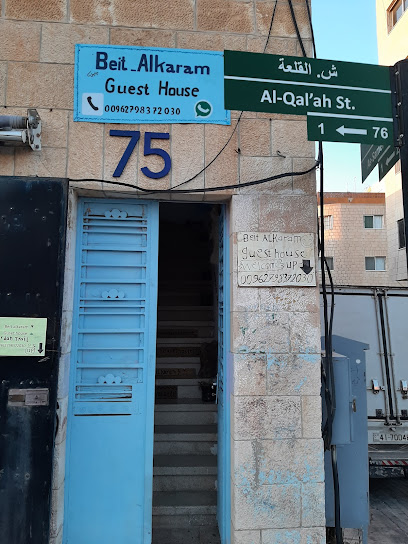
Al-Karak Castle Ticket Office
Experience the grandeur of Al-Karak Castle, a historical gem in Jordan that showcases medieval architecture and breathtaking views.
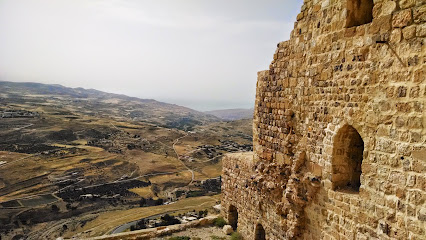
Wadi Al Karak
Explore the breathtaking landscapes and rich history of Wadi Al Karak, a top hiking destination in Jordan, ideal for adventure seekers and nature lovers.
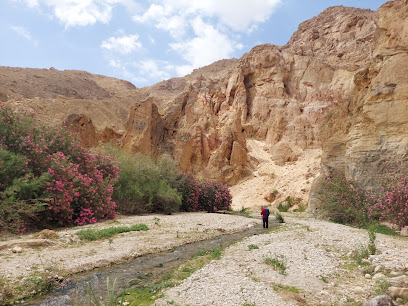
البرج المملوكي
Explore the grandeur of Kerak Castle, a historical landmark showcasing medieval architecture and breathtaking views in the heart of Jordan.
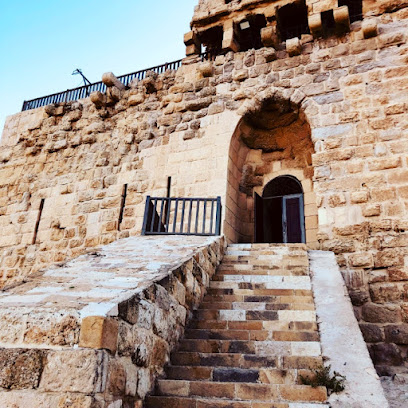
Unmissable attractions to see
مطل الموجب Moujib Panorama
Discover the stunning vistas of Moujib Panorama, a must-visit viewpoint in Dhiban, Jordan, offering breathtaking landscapes and outdoor adventures.
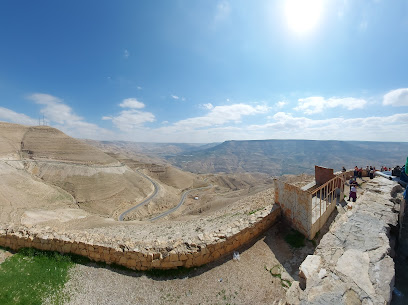
Karak Bridge Park منتزه جسر الكرك
Experience the tranquility of Karak Bridge Park, a serene escape in Kerak, Jordan, perfect for nature lovers and families exploring the city's rich heritage.
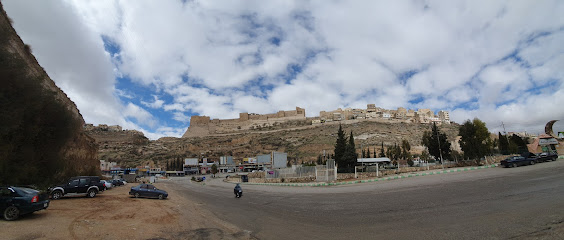
حديقة الظاهر بيبرس
Discover the tranquility and natural beauty of Al-Zaher Park in Kerak, a perfect retreat for relaxation and leisurely exploration.
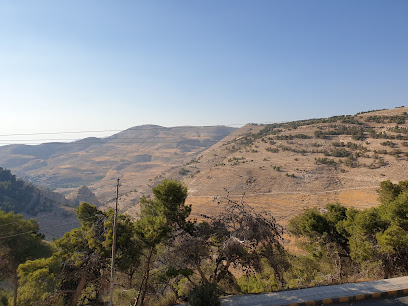
Shrine of Prophet Nuh Peace Be Upon Him - Kerak City
Explore the Shrine of Prophet Nuh in Kerak City, a significant religious site reflecting Jordan's rich cultural heritage and spiritual history.
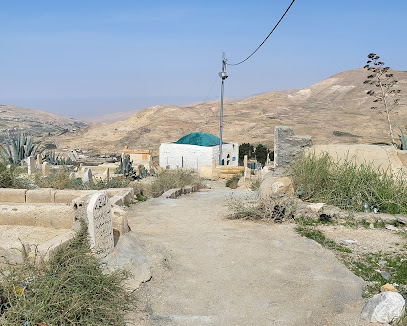
غابات اليوبيل
Discover the serene beauty of Ghabat Al-Yubil in Kerak, a tranquil park perfect for nature lovers and peaceful escapes.

منتزه طلة الكرك
Discover the serene beauty and historical richness of Montazah Talat Al-Kirk, a state park in Kerak, Jordan, perfect for nature lovers and history enthusiasts.
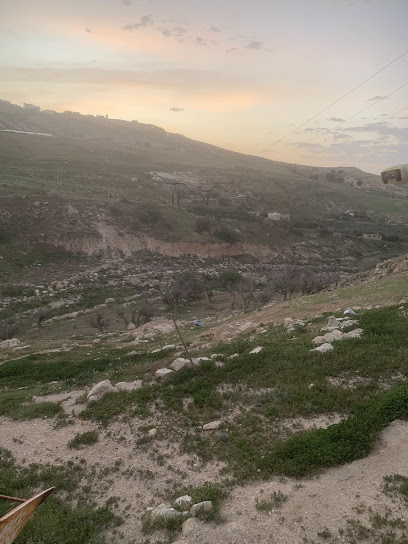
غابات اليوبيل الكرك
Discover the serene beauty of Al-Yubil Park in Kerak, a perfect retreat for nature lovers and families seeking tranquility amidst stunning landscapes.
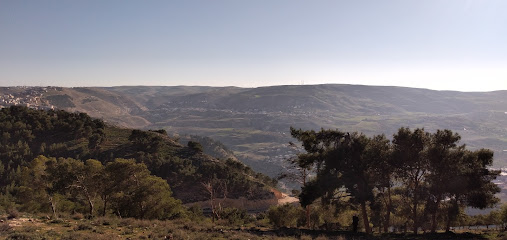
Wadi Alkarak وادي الكرك المسار السفلي
Explore the stunning landscapes of Wadi Alkarak, a hiking haven in Jordan, perfect for nature lovers and adventure enthusiasts.
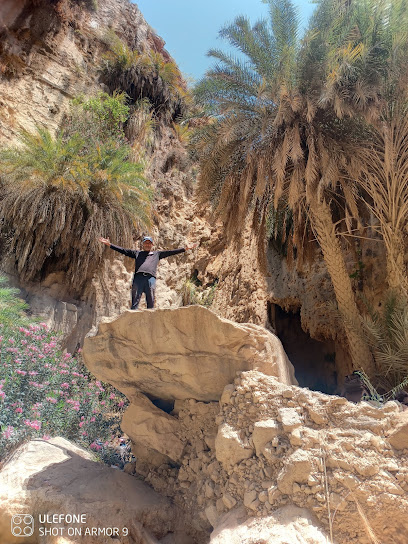
رتقة المغاريب
Experience the enchanting beauty and rich history of رَتْقَة الْمَغَارِب, a premier tourist attraction in At-Tayyibah, Jordan.
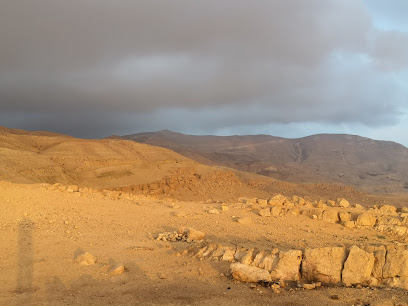
القرية القديمة
Discover the rich history and stunning architecture of Al-Qarya Al-Qadimah, a fascinating tourist attraction in Jordan's As-Simakiyah.
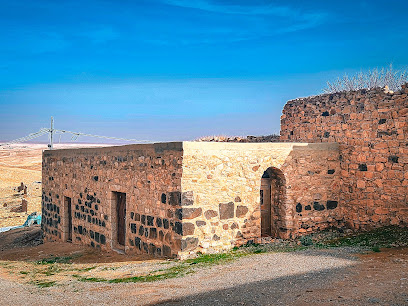
راس الحاجب
Discover the serene beauty of Ras Al-Hajeb Park, a tranquil escape near Kerak, perfect for relaxation and outdoor fun.
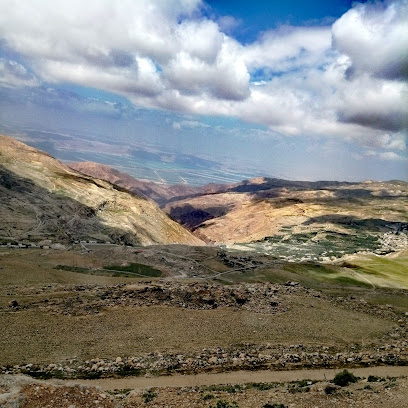
متنزه حابس المجالي
Discover the beauty of متنزّه حابس المجالي, a serene park in Kerak perfect for relaxation, picnics, and enjoying nature's tranquility.
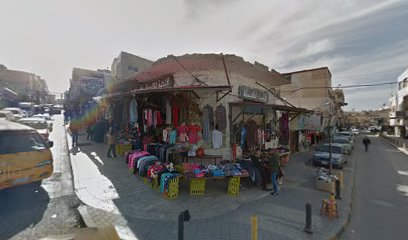
غابة اليوبيل
Explore the tranquil beauty of the Jubilee Garden in Kerak, a serene escape filled with lush greenery and vibrant floral displays.
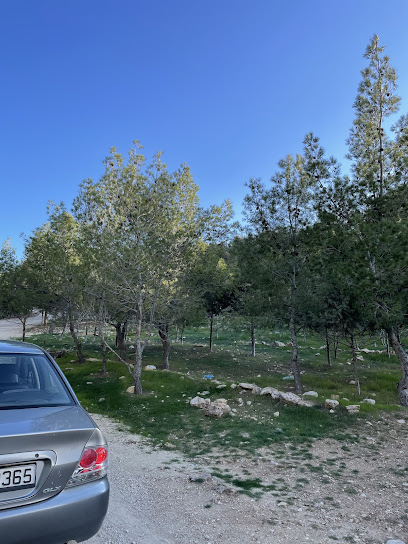
ام الينابيع
Explore Em Al-Yanabiy, a hidden gem in Khresha, Jordan, where stunning landscapes meet rich cultural heritage for an unforgettable travel experience.
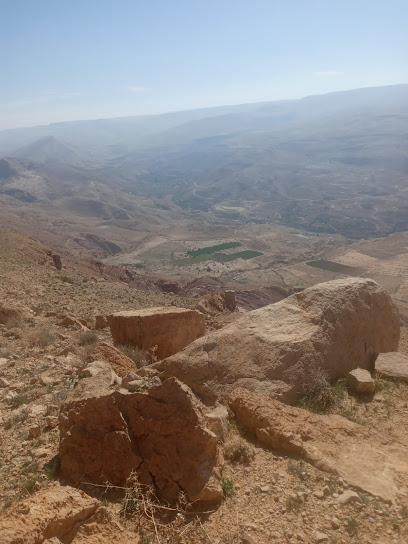
منطقة بثينه
Discover the breathtaking hiking trails of منطقة بثينة in Kerak, where nature meets adventure and history awaits your exploration.
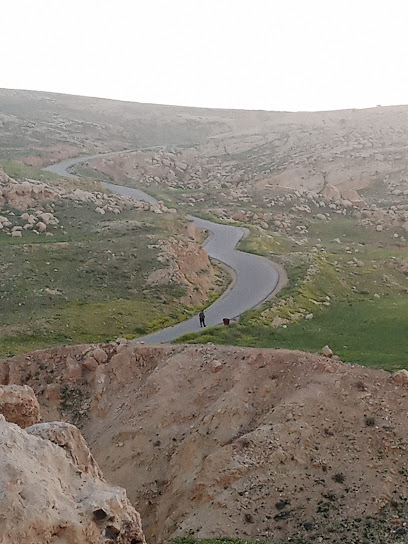
Essential places to dine
مطعم ومشاوي ليالي الكرك
Experience authentic Jordanian flavors at مطعم ومشاوي ليالي الكرك in Kerak - a culinary gem with delicious grilled specialties.
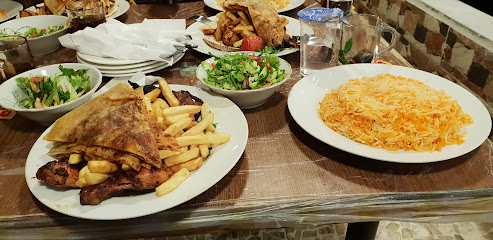
MU'AB RESTAURANT
Savor authentic Jordanian cuisine at Mu'ab Restaurant in Kerak - where tradition meets flavor.
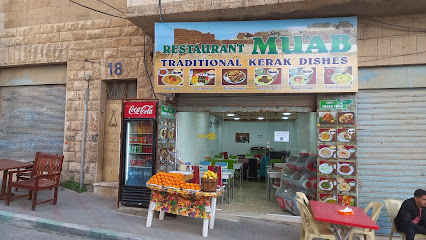
Beit Sweimeh بيت سويمة
Experience authentic Jordanian cuisine with breathtaking views at Beit Sweimeh – where every meal tells a story.
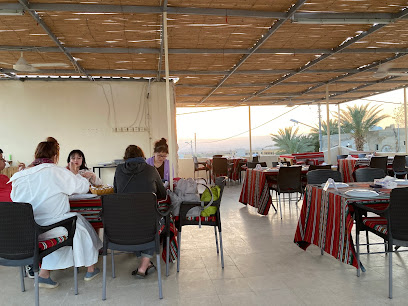
Adel Halabi Restaurant
Discover the authentic tastes of Jordan at Adel Halabi Restaurant in Kerak - where tradition meets flavor in every dish.
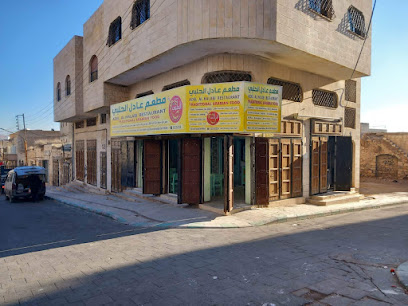
مطعم أماسينا Amasina restaurant
Experience authentic Jordanian flavors at Amasina Restaurant in Kerak – where tradition meets taste in every dish.
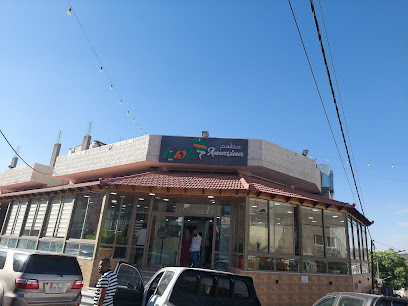
NEA local food
Experience authentic Jordanian cuisine at NEA Local Food in فِيَفَا – where every dish tells a story.
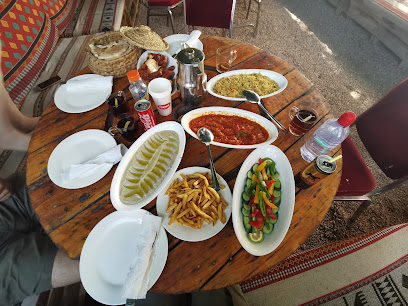
Al karak Panorama
Discover Al Karak Panorama: A restaurant blending authentic Jordanian cuisine with breathtaking views in historic Kerak.
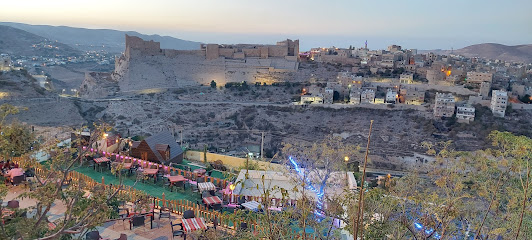
Safi kitchen
Discover authentic Jordanian cuisine at Safi Kitchen in Gawr as-Safi, where delicious meals meet warm hospitality.
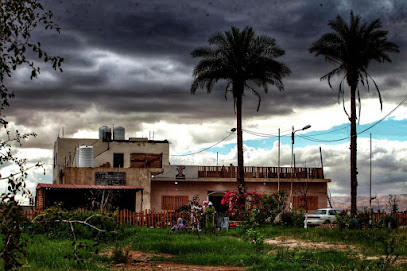
KOI Dabouq
Experience the best of Asian cuisine at KOI Dabouq in Amman—where every dish tells a story of flavor and tradition.
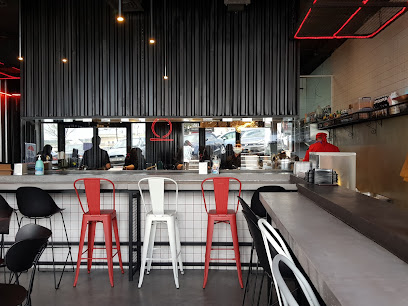
Qasr Al Zarb مطعم قصر الزرب
Savor authentic Jordanian flavors at Qasr Al Zarb, where tradition meets culinary excellence in the heart of Amman.
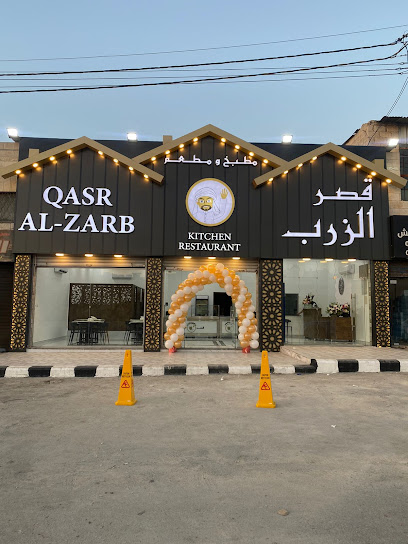
مطعم ريف الثنية
Experience the authentic flavors of Jordan at مطعم ريف الثنية in Kerak—where tradition meets taste in every dish.
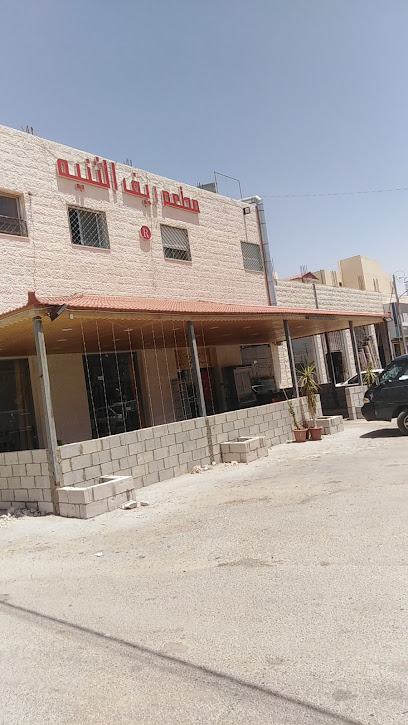
Karak Delights -بيت الجباتي و شاي كرك University Street
Experience authentic Jordanian flavors at Karak Delights - savor delicious Karak tea and traditional dishes in the heart of Amman.
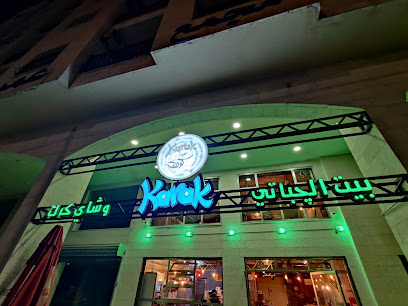
Kir Heres Restaurant
Savor traditional Jordanian flavors at Kir Heres Restaurant in Kerak – where every dish tells a story.
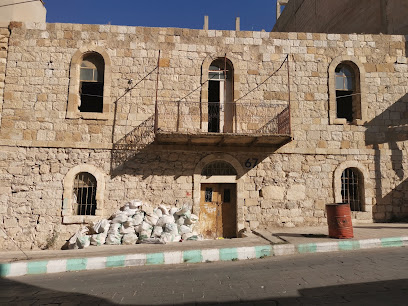
Saraya Castle Restaurant مطعم سرايا القلعة السياحي
Experience authentic Jordanian cuisine with breathtaking views at Saraya Castle Restaurant in historic Kerak.
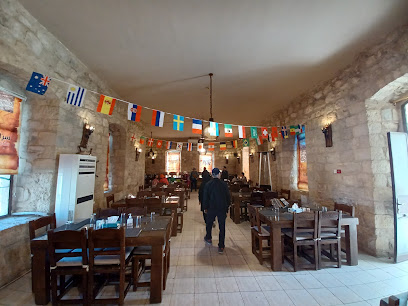
مطعم ومشاوي الرمسي
Experience authentic Jordanian barbecue at مطعم ومشاوي الرمسي in Mu'tah - where tradition meets flavor in every bite.
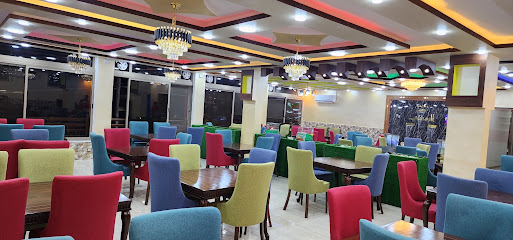
Markets, malls and hidden boutiques
Kerak Castle
Explore the rich history of Kerak Castle, a stunning medieval fortress in Jordan offering breathtaking views and captivating stories of the Crusades.
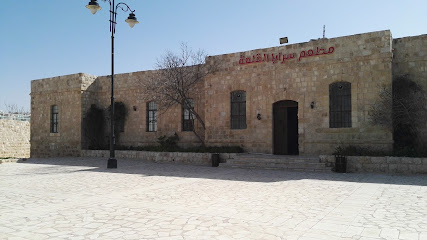
Wadi Bin Hammad
Explore the mesmerizing Wadi Bin Hammad, a breathtaking hiking area in Jordan, featuring stunning waterfalls and rich biodiversity.
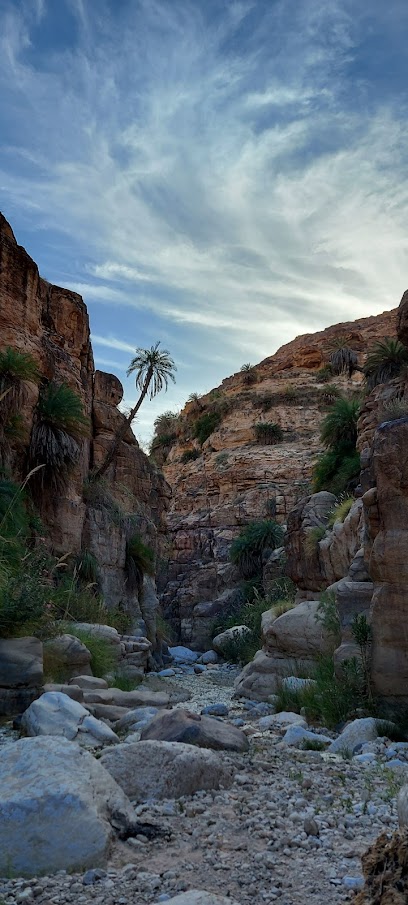
Jordan Craft Center
Explore the vibrant world of Jordanian craftsmanship at the Jordan Craft Center - a unique blend of art, culture, and shopping in Amman.
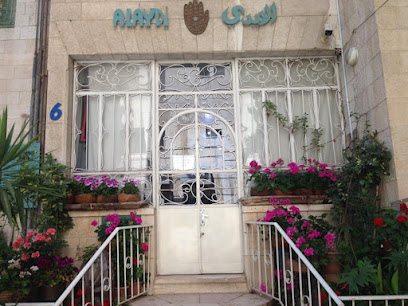
مجوهرات طارق Tareq Jewelry
Explore exquisite jewelry craftsmanship at Tareq Jewelry in Kerak, where tradition meets elegance in every stunning piece.
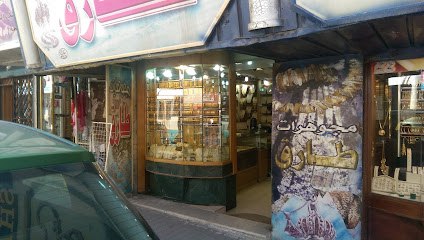
Cayffeine coffee
Experience the best of local coffee culture at Cayffeine Coffee in Kerak, where every sip tells a story of tradition and flavor.
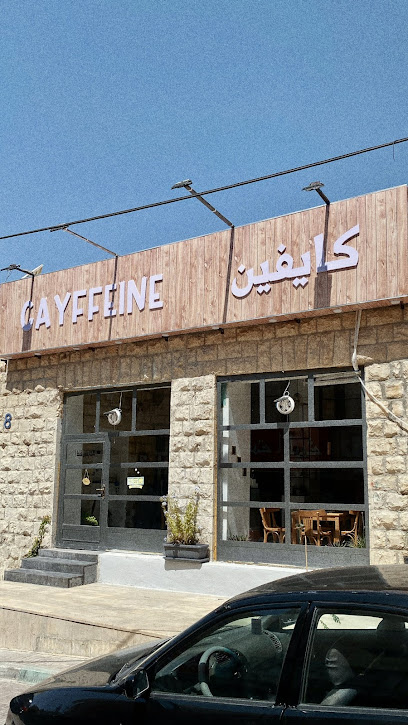
Mosaic house art & mosaics
Discover the artistic heritage of Madaba at Mosaic House, where vibrant mosaics and unique crafts await every visitor.
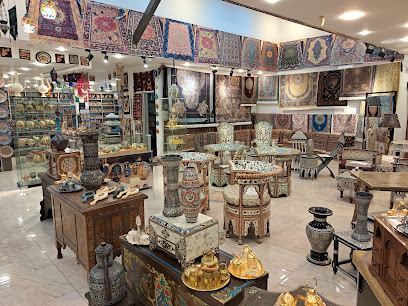
SZ Liquor Store
Explore a diverse selection of wines and spirits at SZ Liquor Store, a top destination for beverage enthusiasts in Kerak.
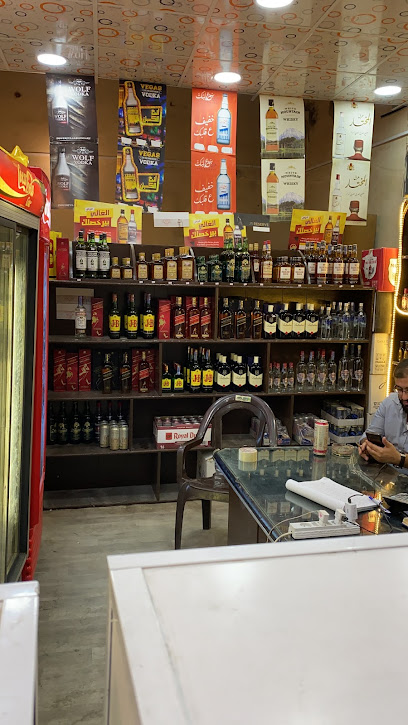
اسواق مؤته التجاريه للادوات المنزليه
Discover unique household treasures and local craftsmanship at اسواق مؤته التجاريه للادوات المنزليه in Kerak, a must-visit for culture-loving travelers.
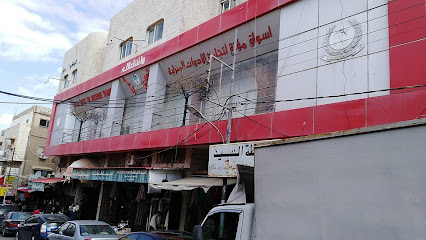
Town Bazaar
Discover the vibrant Town Bazaar, a shopper's paradise filled with unique clothing, local craftsmanship, and an unforgettable cultural experience.

سوبر ماركت صخر الحباشنه
Experience the vibrant local culture at Supermarket صخر الحباشنه in Kerak, where shopping meets community spirit and unique finds await.
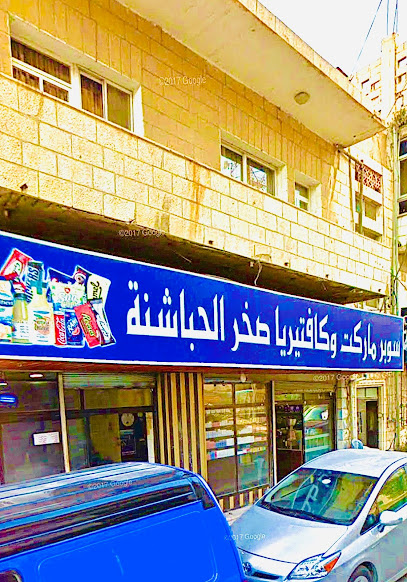
Souk Zara Souvenir and Handicraft shop
Explore Souk Zara, the perfect destination for authentic Jordanian souvenirs and handicrafts in Amman, within the Grand Hyatt Hotel.
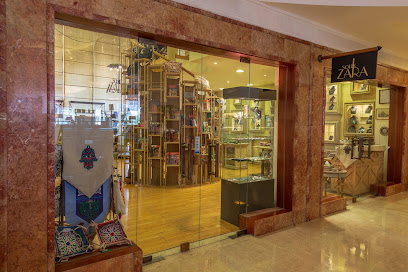
Wadi Al Karak
Discover the breathtaking landscapes and rich history of Wadi Al Karak, a premier hiking destination in the heart of Jordan.
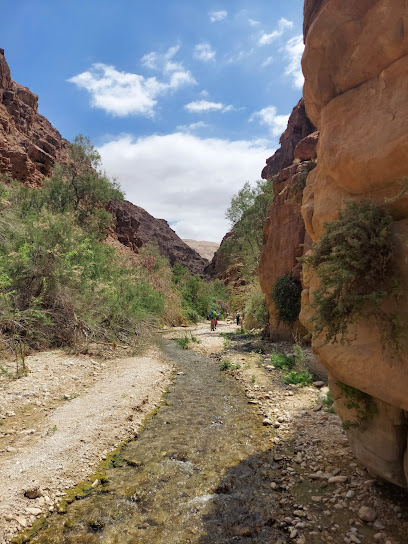
مجوهرات الكرك الختاتنه
Explore the exquisite craftsmanship of مجوهرات الكرك الختاتنه, a premier jewelry store in Kerak, offering unique and stunning handcrafted jewelry.
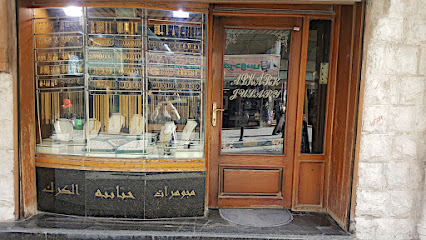
Raed coffee Best Rest
Experience the warmth of Jordanian hospitality at Raed Coffee, a charming spot in Kerak offering exceptional brews and local delights.
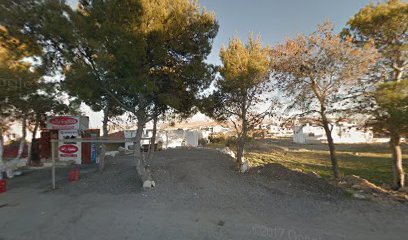
توجان سنتر
Discover unique fashion at Tujan Center in Kerak, where local style meets modern trends in a vibrant shopping experience.
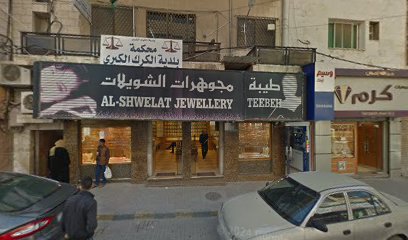
Essential bars & hidden hideouts
Kir Heres Restaurant
Savor the authentic flavors of Jordanian cuisine at Kir Heres Restaurant in Kerak, where tradition meets delightful dining experiences.
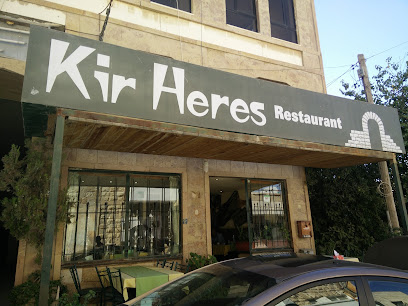
Modhelah wedding and party hall
Discover the perfect venue for your celebrations at Modhelah Wedding and Party Hall in Kerak, Jordan, blending elegance and hospitality.
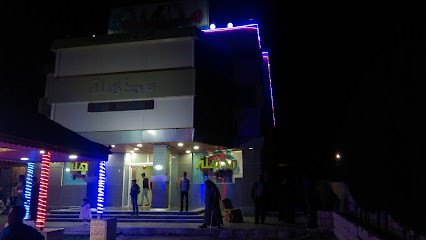
Royal Galleries
Experience the tranquility and cultural charm of the Royal Galleries in Kerak, where relaxation meets local heritage.
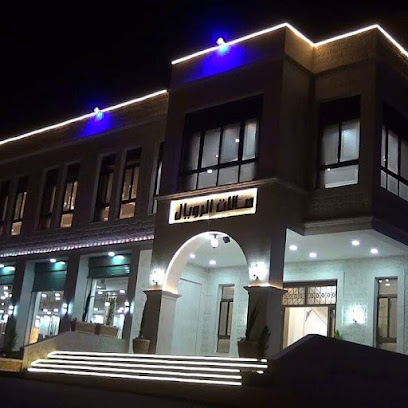
Al-Fid'a Restaurant
Experience the essence of Jordanian cuisine at Al-Fid'a Restaurant in Kerak, where tradition meets flavor in every dish.
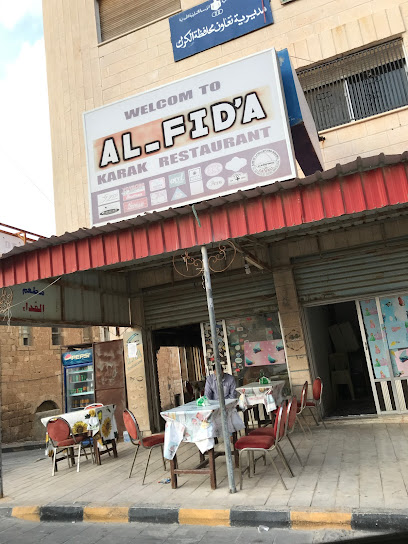
DME Burger
Experience the best American-style burgers at DME Burger in Kerak, where flavors meet Jordanian charm.
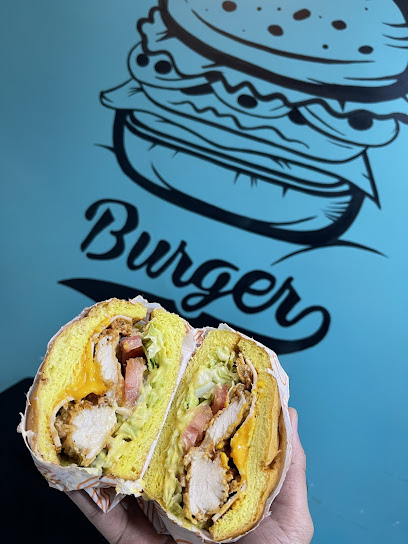
Kings Castle Restaurant
Experience authentic Jordanian flavors at Kings Castle Restaurant with stunning views of Kerak's historic sites.
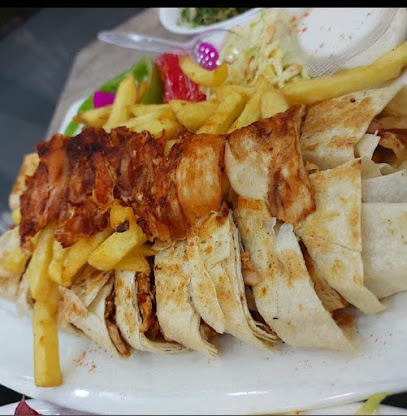
معصرة بلدية عي الحديثة
Experience the authentic taste of local ciders at معصرة بلدية عي الحديثة, a charming cider bar in the heart of Kerak, Jordan.
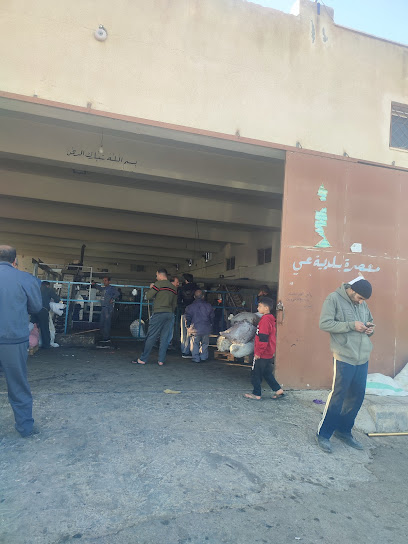
El torero restaurant مطعم التوريرو
Experience the authentic flavors of Jordan at El Torero Restaurant in Kerak, where every dish tells a story.
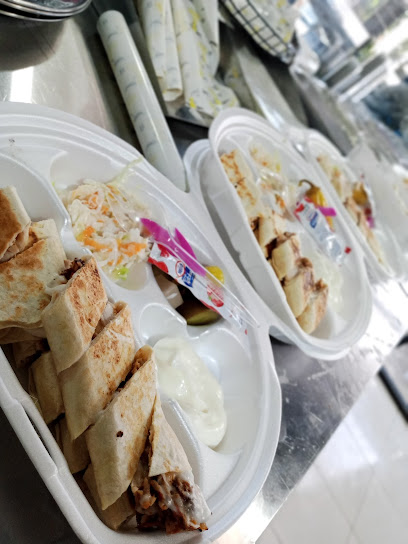
متجر مشروبات روحية samer
Discover the rich flavors of local and international spirits at Samer Spirits Store in Kerak, where culture and relaxation meet.
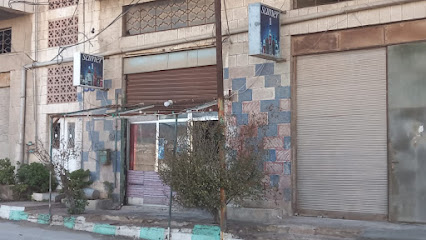
جميعه الغوير الخيرية
Discover جميعه الغوير الخيرية in الكرك - a versatile lounge and village hall perfect for gatherings and celebrations.
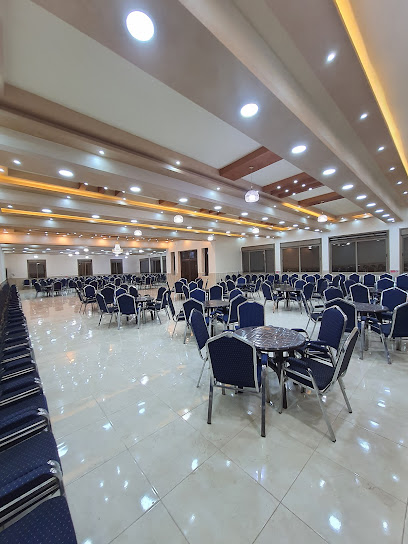
Samer 1
Discover the vibrant nightlife at Samer 1, a popular bar in Kerak offering a delightful drink selection and a lively atmosphere for tourists.
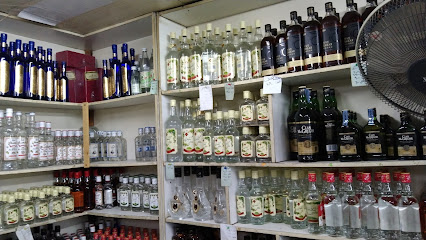
استراحة بوابة الكرك
Experience authentic Jordanian cuisine at استراحة بوابة الكرك, a culinary gem in the heart of Kerak, where tradition meets taste.
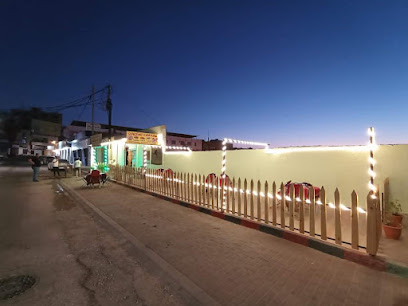
المرج
Experience the vibrant ambiance and local flavors at المرج, a bar in Kerak that embodies Jordanian hospitality and culture.
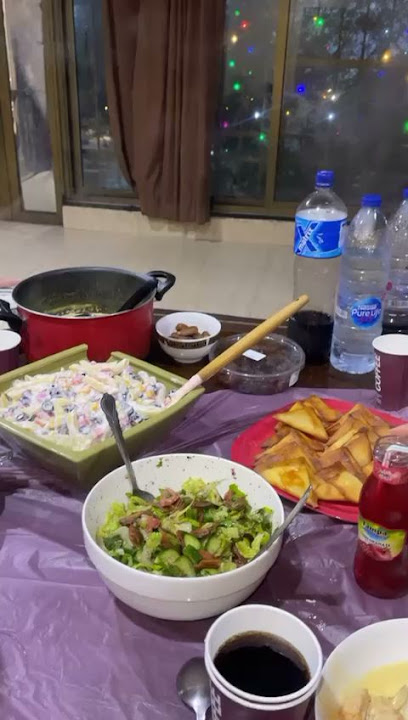
الخيمة الباجسية
Experience the vibrant atmosphere and unique local flavors at الخيمة الباجسية, the perfect bar to unwind in Kerak.
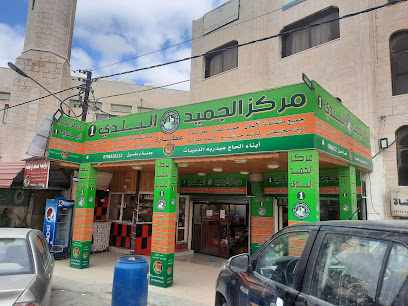
Local Phrases about Al Karak
-
- Helloمرحبا
[marhaba] - Goodbyeوداعا
[wada'an] - Yesنعم
[naam] - Noلا
[la] - Please/You're welcomeمن فضلك
[min fadlik] - Thank youشكرا
[shukran] - Excuse me/Sorryعذرا
[aadhra] - How are you?كيف حالك؟
[kayfa halak?] - Fine. And you?بخير. وأنت؟
[bikhayr. wa ant?] - Do you speak English?هل تتحدث الإنجليزية؟
[hal tatahadath al'inglizia?] - I don't understandأنا لا أفهم
[ana la afham]
- Helloمرحبا
-
- I'd like to see the menu, pleaseأريد أن أرى القائمة، من فضلك
[uriidu an ara alqaimah, min fadlik] - I don't eat meatأنا لا آكل اللحم
[ana la aakul allahm] - Cheers!صحتين!
[sahhtayn!] - I would like to pay, pleaseأود أن أدفع، من فضلك
[awadu an adfa', min fadlik]
- I'd like to see the menu, pleaseأريد أن أرى القائمة، من فضلك
-
- Help!النجدة!
[annajdah!] - Go away!اذهب بعيدا!
[idhab ba'eedan!] - Call the Police!اتصل بالشرطة!
[itassal bilshurtah!] - Call a doctor!اتصل بطبيب!
[itassal bitabib!] - I'm lostأنا ضائع
[ana daa'i] - I'm illأنا مريض
[ana mareed]
- Help!النجدة!
-
- I'd like to buy...أود أن أشتري...
[awadu an ashtari...] - I'm just lookingأنا فقط أتفرج
[ana faqat atafarraj] - How much is it?كم سعره؟
[kam sa'ruh?] - That's too expensiveهذا غالي جدا
[hatha ghali jiddan] - Can you lower the price?هل يمكنك خفض السعر؟
[hal yumkinuka khafdal sa'ar?]
- I'd like to buy...أود أن أشتري...
-
- What time is it?كم الوقت؟
[kam alwaqt?] - It's one o'clockالساعة الواحدة
[alsaa'at alwaahidah] - Half past (10)النصف بعد (10)
[alnusf ba'd (10)] - Morningصباح
[sabah] - Afternoonبعد الظهر
[ba'd aldhuhur] - Eveningمساء
[masa] - Yesterdayأمس
[ams] - Todayاليوم
[alyawm] - Tomorrowغدا
[ghadan] - 1واحد
[wahid] - 2اثنان
[ithnan] - 3ثلاثة
[thalatha] - 4أربعة
[arba'a] - 5خمسة
[khamsa] - 6ستة
[sitta] - 7سبعة
[sab'a] - 8ثمانية
[thamania] - 9تسعة
[tis'a] - 10عشرة
[ashara]
- What time is it?كم الوقت؟
-
- Where's a/the...?أين...؟
[ayna...?] - What's the address?ما هو العنوان؟
[ma huwa al'anaan?] - Can you show me (on the map)?هل يمكنك أن تريني (على الخريطة)؟
[hal yumkinuka an tareeni (ala alkharitah)?] - When's the next (bus)?متى الحافلة التالية؟
[mata alhaafilat altaalihah?] - A ticket (to ....)تذكرة (إلى ...)
[tadhkirah (ila ...)]
- Where's a/the...?أين...؟
History of Al Karak
-
Al Karak, known historically as Kerak, has origins dating back to the Iron Age. It was an important settlement for the Moabites, an ancient Semitic people. The city's strategic location on the King's Highway made it a significant trade and military route, connecting Egypt with Mesopotamia.
-
During the Byzantine period, Al Karak was a bishopric and a regional center. It continued to thrive under early Islamic rule, particularly during the Umayyad and Abbasid caliphates. Archaeological remains from this period, including churches and mosaics, highlight the city's importance and its diverse cultural influences.
-
Al Karak's most famous historical period began in the 12th century when it became a Crusader stronghold. The Crusaders built the imposing Kerak Castle, which dominates the city's landscape. The castle was a critical fortification in the Crusader Kingdom of Jerusalem and played a pivotal role in the conflicts between Crusaders and Muslim forces. It withstood numerous sieges, including those led by the famous Muslim leader Salah ad-Din (Saladin).
-
After the fall of the Crusader states, Al Karak came under the control of the Ayyubid dynasty, established by Salah ad-Din. The Ayyubids and later the Mamluks expanded and fortified the castle further, using it as a key defensive and administrative center in the region.
-
In the early 16th century, Al Karak became part of the Ottoman Empire. The Ottomans maintained the city's strategic significance, using it as a local administrative center. The period saw the construction of new buildings and the refurbishment of older structures, contributing to the city's historical architectural landscape.
-
In the 20th century, Al Karak witnessed significant changes, particularly as Jordan became an independent state in 1946. The city has grown, blending its rich historical heritage with modern development. Kerak Castle remains a prominent historical and tourist attraction, drawing visitors from around the world to explore its storied past.
Al Karak Essentials
-
Al Karak is located about 140 kilometers south of Amman, the capital of Jordan. The most convenient way to get there is by car, which takes around 1.5 to 2 hours. You can rent a car from Amman or take a taxi. Alternatively, you can use public transportation; JETT buses operate regular services from Amman to Al Karak. These buses depart from the JETT bus station in Amman and are a comfortable and affordable option.
-
Within Al Karak, taxis are the most common form of transportation and are relatively inexpensive. There is no formal public transport system in Al Karak, but local minibuses (servis) can be found, usually congregating around the main bus station. For a more flexible and convenient way to explore the surrounding areas, consider renting a car.
-
The official currency in Jordan is the Jordanian Dinar (JOD). Credit cards are accepted in larger hotels, restaurants, and shops, but it's advisable to carry cash for smaller purchases and in more remote areas. ATMs are available in Al Karak, but it's a good idea to withdraw sufficient cash in major cities like Amman before traveling.
-
Al Karak is generally safe for tourists, but it's essential to take standard precautions. Avoid walking alone at night, especially in poorly lit areas. Although serious crimes are rare, petty theft can occur, so keep an eye on your belongings in crowded places. There are no specific high-crime areas targeting tourists, but staying vigilant is always recommended.
-
In case of an emergency, dial 911 for immediate assistance. Al Karak has local police stations and medical facilities. It's recommended to have travel insurance that covers medical emergencies. For minor health issues, there are pharmacies in the town where you can purchase over-the-counter medications. Make sure to carry a copy of your identification and insurance information.
-
Fashion: Do dress modestly. Avoid wearing revealing clothing, especially when visiting religious sites. Women should cover their shoulders and knees. Religion: Do respect local customs and traditions. Always ask for permission before taking photos in religious or sensitive areas. Public Transport: Do be respectful and considerate. Don't eat or drink on public transport. Greetings: Do greet people with a handshake. Men should wait for women to extend their hand first. Eating & Drinking: Do try local food and accept hospitality graciously. Don’t refuse food or drink offered by locals, as it is considered impolite.
-
To experience Al Karak like a local, visit the vibrant local markets where you can buy fresh produce, spices, and traditional goods. Engage with the locals; they are often friendly and willing to share stories about the town's history and culture. Don't miss visiting the Karak Castle, a Crusader stronghold with stunning views of the surrounding landscape. For a unique dining experience, try the local dish 'Mansaf' at a traditional restaurant.
Nearby Cities to Al Karak
-
Things To Do in Masada
-
Things To Do in Tafilah
-
Things To Do in Ein Gedi
-
Things To Do in Dead Sea
-
Things To Do in Dana
-
Things To Do in Madaba
-
Things To Do in Bethlehem
-
Things To Do in Jerusalem
-
Things To Do in Beersheba
-
Things To Do in Amman
-
Things To Do in Salt
-
Things To Do in Petra
-
Things To Do in Modi'in
-
Things To Do in Ma'an
-
Things To Do in Ashdod








